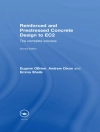Utilities work with regulators to treat wastewater to levels that protect human health and ecosystems. Water quality criteria and permits are based on scientifically defensible and shared understanding of sources of pollutants in a watershed, as well as treatment capabilities and costs to control these in the aquatic environment. The national discussion of nutrient impacts on water quality continues to evolve – issues in high visibility water bodies such as the Chesapeake Bay, Long Island Sound, Gulf of Mexico, and Puget Sound highlight this. USEPA’s efforts to promulgate numeric nutrient standards in all states raise questions about how these standards apply to wastewater dischargers, whether they are effective, and how they affect WERF Subscribers and others in the water quality arena. This new WERF report, Nutrient Management: Regulatory Approaches to Protect Water Quality, Volume 1 Review of Existing Practices (NUTR1R06i) provides a state-of-the art discussion of key nutrient management issues that confront point source wastewater dischargers nationwide. It provides a better understanding of challenges that utilities and regulators face setting and meeting low nutrient effluent limits, and it expands understanding of the practical capabilities of treatment technology.
David Clark
Nutrient Management [PDF ebook]
Regulatory Approaches to Protect Water Quality
Nutrient Management [PDF ebook]
Regulatory Approaches to Protect Water Quality
قم بشراء هذا الكتاب الإلكتروني واحصل على كتاب آخر مجانًا!
لغة الإنجليزية ● شكل PDF ● ISBN 9781780403465 ● الناشر IWA Publishing ● نشرت 2010 ● للتحميل 6 مرات ● دقة EUR ● هوية شخصية 2998415 ● حماية النسخ Adobe DRM
يتطلب قارئ الكتاب الاليكتروني قادرة DRM












